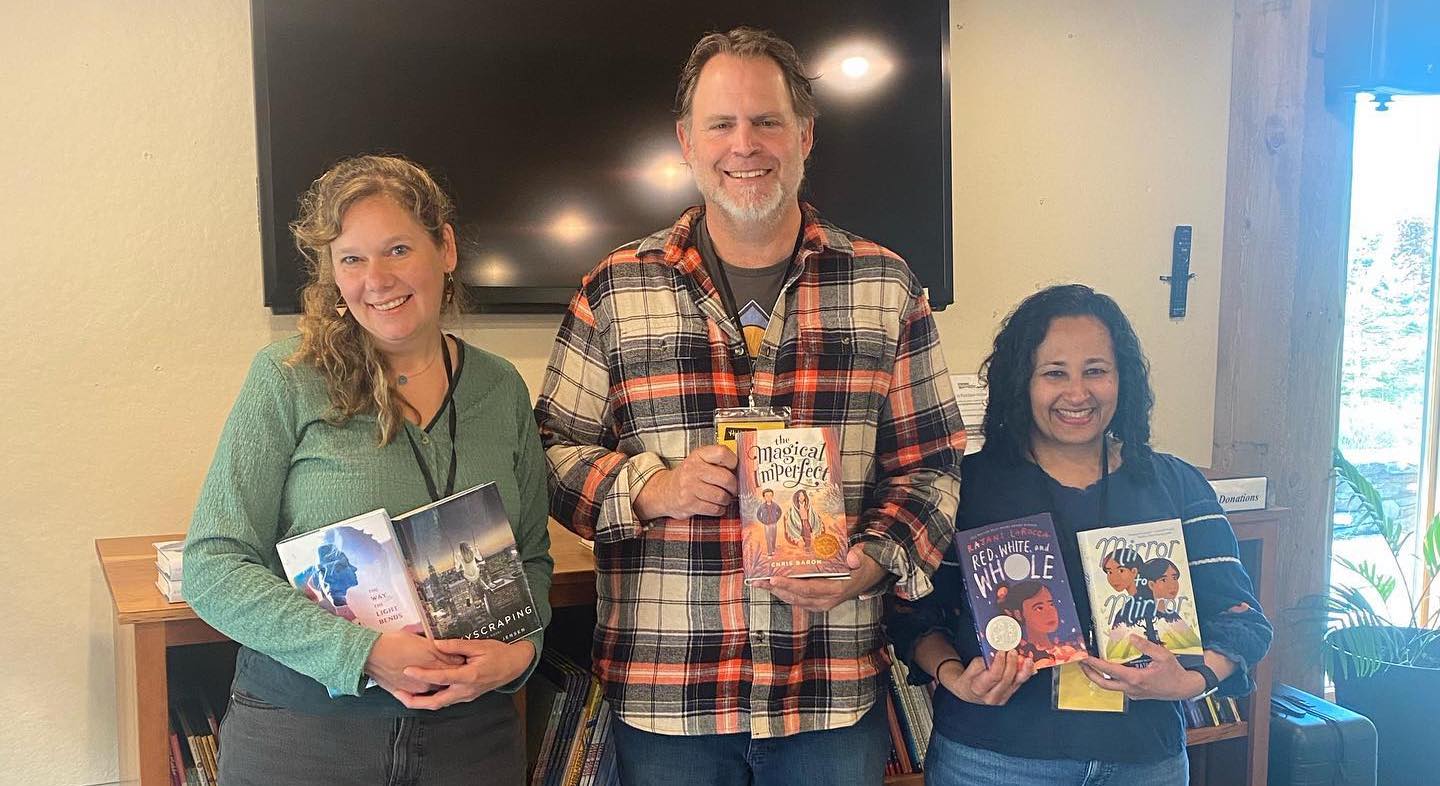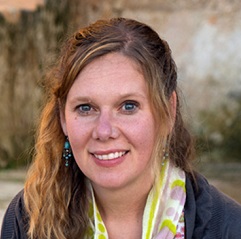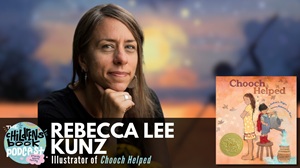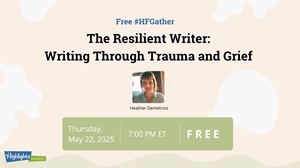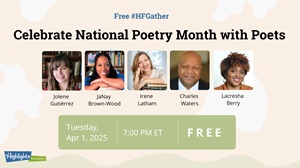What You’ll Find In this Podcast
Cordelia Jensen joined George Brown on our podcast to talk more about the classes she teaches at the Highlights Foundation, her work in progress, and everything related to novels in verse.
Podcast Highlights
Cordelia on the novel in verse classes she teaches at Highlights Foundation:
We came up with an intro class about verse novels and vignettes that I’ve taught. And [there’s a] revising the verse novel class, plotting the verse novel class, and image systems in verse novels.
Cordelia on thoughts about the popularity of novels in verse:
It’s like an exploding marketplace.
You know, it just seems like they really have grabbed hold. And I guess kids really like to read them because they have a lot more white space. You know they’re good for reluctant readers—but I think also it’s the emotional piece.
Cordelia’s feedback for those writing verse novels:
For the people of a poetry background, it’s often about finding voice that might makes sense for middle grader / YA. Because [the writer] might, like, use very elevated language…. Sometimes you have to simplify things or you know, always go back to the emotion, as opposed to the language.
Full Transcript
George Brown: Hi, this is George Brown at the Highlights Foundation. I just had a great chat with Cordelia Jensen who teaches novels in verse classes with US online and she was just here in person. But here’s a great interview with Cordelia talking about all things related to novels in verse. Hope you enjoy. Welcome to the Highlights Foundation gather podcast, where our mission is to positively impact children by amplifying the voices of storytellers who inform, educate, and inspire children to become their best selves. Today in the studio I have Cordelia Jensen, welcome Cordelia. I’m so glad you’re here. You came as part of our novels in verse, a retreat that just is ending today. But you also teach a lot with the Highlights. And can you talk to us a little bit about the classes you teach with us?
Cordelia Jensen: Sure, I’ve actually, this is the first time that I’ve been here teaching or workshopping and retreating in person. But I have taught online, maybe I think like 15 classes for highlights, all verse novel specific. Allison had taken one of my classes for a different organization of like a one day event, and so we had talked about what I might do with Highlights. And I just kind of came up with ideas, and we brainstormed together. So we came up with a like an intro class about verse novels and vignettes that I’ve taught and revising the verse novel class, plotting the verse novel class, and image systems in verse novels. So yeah, we tried to offer a variety to people, and there’s some people who have taken numerous classes with me and then and some have taken one and yeah.
George Brown: I get a sense that verse novels are your thing.
Cordelia Jensen: Yes, so my only published book, I have 3 published books and two are YA verse novels and one is a middle grade that I wrote co-authored with my friend Laurie Morrison and her character is in prose, and mine is in verse. So yeah, I have a poetry background originally.
George Brown: So what are the titles of those three books?
Cordelia Jensen: So Skyscraping was my first novel that came out in 2015 with Penguin Random House, and then The Way the Light Bends came a couple years after that. Also a YA novel and then Every Shiny Thing is the one that I coauthored with Lori, who was my roommate at Vermont College of Fine Arts and is a great friend of mine and yeah.
George Brown: Cool, I love to hear that collaboration we were talking to Chris and Rajani yesterday about their collaborative novel, and actually they said it was not a novel in verse it was a epistolary.
Cordelia Jensen: Yeah, it’s like a multimedia epistolary.
George Brown: OK. So you’re into novels and verse. You teach a variety of courses at the Highlights Foundation. So far, they’ve all been online and they are different lengths and structures, right? I think you’ve done like some of the like 6 week, the longer versions and some of the short one to two night mini sessions. And you were telling me yesterday you have one coming up in the fall that you’re or new one concept you’re working on.
Cordelia Jensen: So we’re doing the revising the first novel again this fall. And I think this will be the third time that one is running. And then we haven’t, we’re this isn’t finalized, but Allison and I were brainstorming maybe doing like a perfecting the 1st 20 pages of your verse novel. You know, like something that, you know, a lot of people want to have something they can send out to agents and for pre published authors.
George Brown: So with the revising one would people have had to have taken your first intro course or not necessarily.
Cordelia Jensen: That’s a great question. So we designed it that we have these preloaded videos of me talking about more introductory material in the modules. So if they haven’t taken my other classes, they watch those and it’ll help them like catch them up because I do use some kind of language that it helps to know what I’m talking about.
George Brown: And where would you expect an author to be in order to do like a revising their verse novel like should they have done the whole first draft or?
Cordelia Jensen: Right. I think it works great if they have the whole first draft, like that’s kind of the ideal, but there are definitely a handful of people have taken it where they have like maybe 3/4 or half of the drop, but then they know what’s going to happen, or at least have an idea coming into the course and then they might change their mind.
George Brown: So even if they’re not completely finished with that first draft, they still have enough going that they can start to think about how they’re going to approach that revision process. Alright, alright, lovely. OK, so how about you and your writing? So one of the things we talked about is the plantser and the plotter and like a writing habit etcetera. Do you have a like a daily writing practice? Are you intentionally doing a specific writing every day? How does that work for you?
Cordelia Jensen: I more like have writing days. So like I have teaching day I have like, you know Tuesdays I’m teaching or Wednesdays I’m teaching and giving feedback and thinking and doing writing exercise or like planning PowerPoints that I send to Rona and then other days I do freelance editing so I have like editing days and then I usually like write like Thursdays or Fridays. I often are like my writing days and I just go more like a deep dive and I don’t really write every day, though I do journal like just on my own. You know, as a person. And then in terms of plotting like I’m definitely like a plantser, like I like to kind of explore voice and not be like too tied to an outline, but then at a certain point I get confused and so I have to write it down an outline and I’m open to that changing and moving forward. But I’m kind of an inbetweener.
George Brown: And what are you up to in the next couple of weeks, months, are you in the middle of a specific project, you have multiple projects?
Cordelia Jensen: Yeah, I have a book that’s sold. That not announced, so I can’t say anything about it except that I’m working on a revision for it that’s due like in July, yeah.
George Brown: OK. And how you feeling about that?
Cordelia Jensen: I guess I could say it’s a middle grade verse, novel
George Brown: Are you going to make that July deadline?
Cordelia Jensen: I’m very into making deadlines.
George Brown: Okay.
Cordelia Jensen: Yeah, I’m an overachiever in that way. I love a deadline.
George Brown: So will that be pretty much that’s your main focus for the next two months?
Cordelia Jensen: Yeah, after this is over. Oh, I do have these editing jobs that I do on my own and I actually started a book coaching course through authors accelerator. So I’m kind of listening to that content too. That is an organization that kind of works with people one-on-one to take them from like the early story development stage of a project all the way to like looking at agents and helping them.
George Brown: This is a professional development for you. You’re taking the course as a student to learn more.
Cordelia Jensen: To learn to be a book coach.
George Brown: About the book.
Cordelia Jensen: Which I because I basically feel like I do a lot of that as.
George Brown: Have you gotten far enough to explain what a book coach is? I’ve not heard that term.
Cordelia Jensen: Right. Well, it’s like what, yeah, so well, it’s somebody who you just work one-on-one with somebody for a longer period of time, let’s say six months or you like and you make you’re like a project manager for them, like giving them deadlines and giving them, you know, taking them through brainstorming material and then looking really in depth at their packets of writing. That said, it’s almost like an like a mini MFA program, but.
George Brown: OK. So it’s really about a guided coaching through the craft, the writing process.
Cordelia Jensen: Yes and it can be, it can be for somebody who wants to be traditionally published, but sometimes for people somebody wants to self publish or just like write on their own, you know doesn’t have to the you know the goal is more about the process, necessarily the product, but I don’t, I’m just somewhat like I’m only halfway through doing that. I don’t know if I’ll even finish, but it’s something that I also am working through.
George Brown: And you mentioned some editorial clients, how does the editing piece work?
Cordelia Jensen: Basically, somebody just reaches out to me and says I, it’s, it’s really specific to middle grade YA verse novels. You know, there’s not that many people that freelance edit those and so I just usually when he reaches out and they pick a month that they want to work with me, I tell them if I have room or time and then I do like developmental edits on their verse novel and then we have like, a follow up call and I, and I usually return in like 4 to six weeks.
George Brown: And where are those manuscripts typically in process?
Cordelia Jensen: Both like a first draft and like a revised draft, I’d say I do some like brainstorming work with people who just have like, you know, 20 kind of what we did this weekend where, you know, you see a of some, you know, a few poems and, like, talk through somebody’s arc with them. I do that also, I will do that with people.
George Brown: So for the editorial work you do, you can either be at a first draft finished like here kind of help me figure out how to get into the revision process. And others who have said here I’ve gone through the revising, help me get it all ready to get submitted to an agent. All right, I like it.
Cordelia Jensen: Or some people already publish like I work with people and they might be just like giving to an editor at a publishing house.
George Brown: And they just want your feedback before they go.
Cordelia Jensen: So very often people come from like they’re they have a poetry background and they want to write a story or they have a story background and they want to like, like, oh, first album. Maybe I could do that, you know?
George Brown: So it’s funny you say that I was just speaking with one of the students here and she’s written, I think she said 18 picture books in the past few years and she’s interested in this verse novel thing. Like what do you see? How do people get into verse novels? Or like, where are you seeing that interest?
Cordelia Jensen: I mean, I think it’s a, it’s like an exploding marketplace, I, you know. So when Skyscraping came out, it was more unusual to have or sell, they just weren’t as popular and now. You know, it just seems like they really have grabbed hold and I guess kids really like to read them because they have a lot more white space. You know they’re good for reluctant readers, but I think also it’s the emotional piece. Like you can really feel very deeply emotionally connected to the main character of a story through verse. And because they’re often first person present tense, there’s like an immediacy to it. And intimacy to it and so yeah, I think people feel moved themselves when they read verse novels, and then they wonder like, well, maybe I have a story to tell that it would be a good, good fit, you know.
George Brown: Right. It’s so it’s refreshing when you meet somebody who’s been in other genres, figured out that part of the craft and said OK, Now I’m going to see, see how this first novel part works and other people I’ve met talking about well, I’m a poet and I love to write the poetry, and now trying to put that together into the long form.
Cordelia Jensen: And so for the people of a poetry background, it’s often about like finding voice that might makes sense for middle grader / YA because they might, like, use very elevated language like cause they’re used to like really working turn a phrase, you know, that is like the best it can be the most unusual or interesting. And sometimes that sometimes that works for a middle grade or teen voice and sometimes not like, sometimes you have to like simplify things or you know, always go back to the emotion as opposed to the language. And then people come from the story side and say, like, they don’t even know like what that means to break a line. Why would I break a line here? You know, like, so it’s really more about like fundamentals of poetry that are really important for them to learn, yeah.
George Brown: Coming at it from two different perspectives, lovely. Well, Cordelia, thank you so much for joining me in studio four at the Highlights Foundation. It’s almost lunchtime, so I will let you go and we’ll get back to the yummy food there.
Cordelia Jensen: OK.
George Brown: But thank you for being a part of the Highlights Foundation for your work to help us positively impact children by amplifying the voice of the storytellers.
Cordelia Jensen: Thanks for having me.
2025 Novels in Verse Courses
- Intro to Novels in Verse: Drafting and Deepening Your Story, July 10-31, online
- Novels in Verse: Working Retreat, August 10-13, on campus
- Revising Your Novel in Verse: An Online Course, November 5-December 17, online



